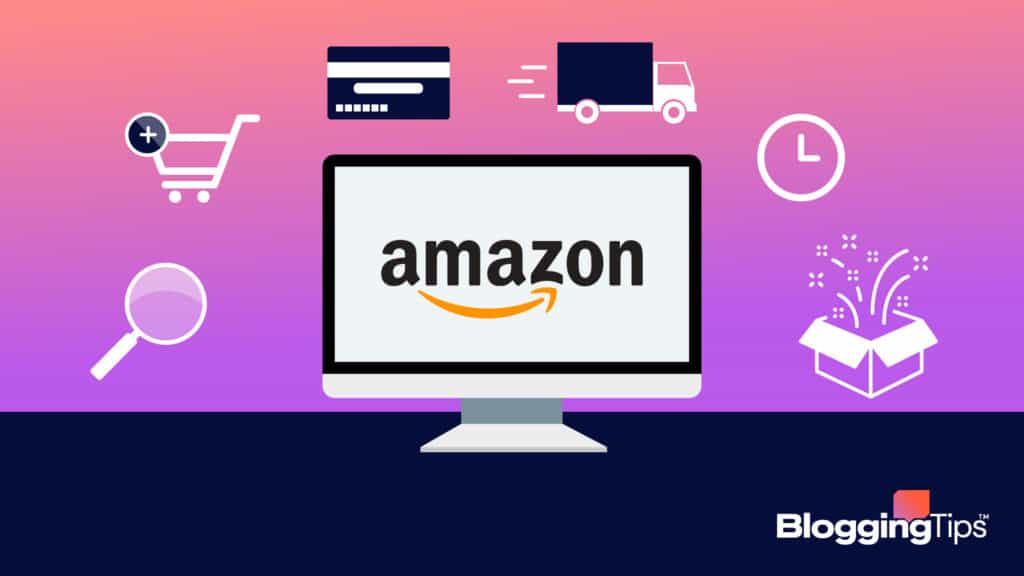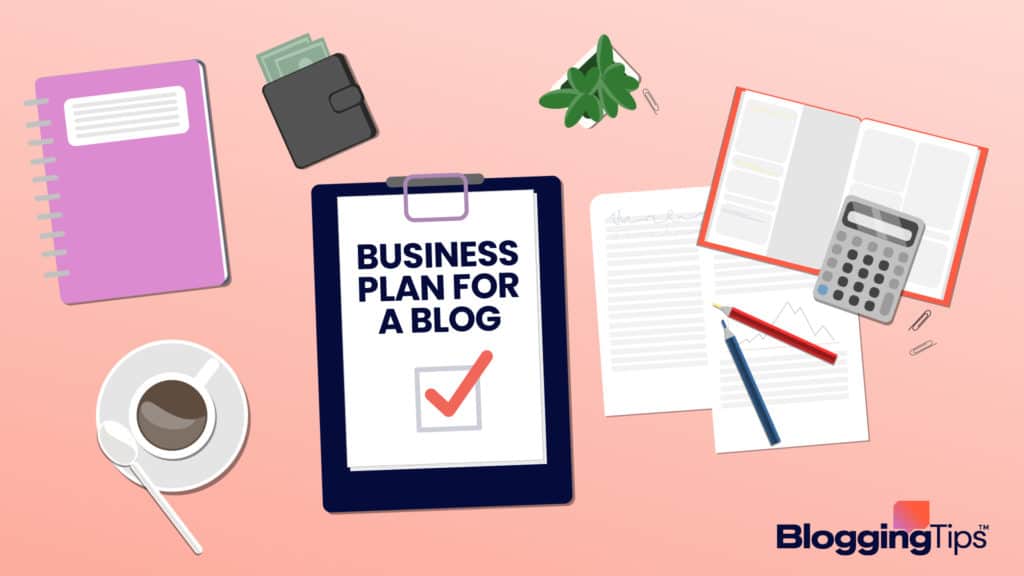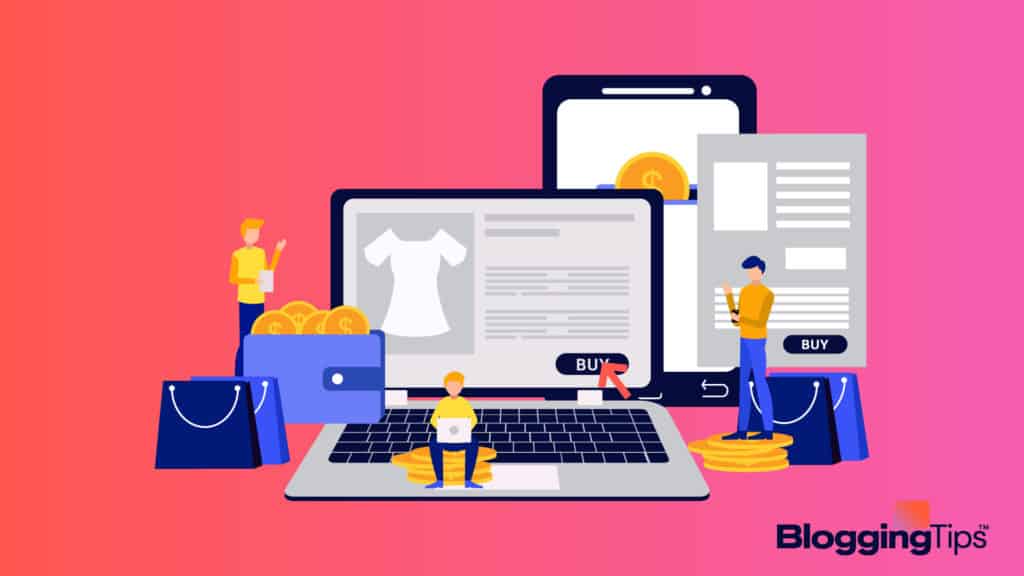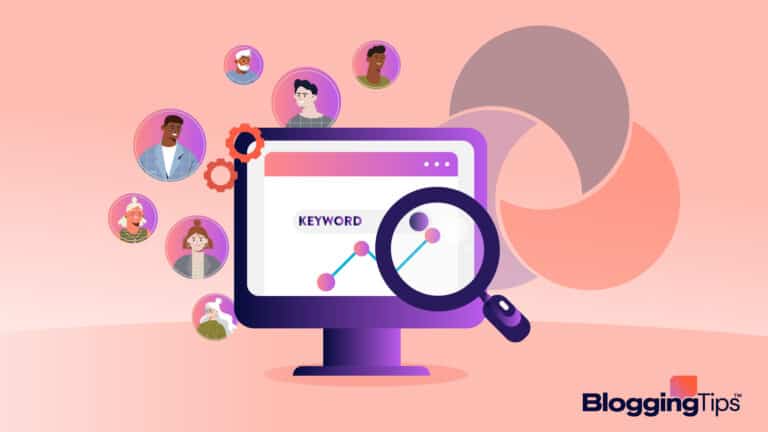Right now is the best time to learn how to start an ecommerce business.
When people think about ecommerce, they think about some of the best ecommerce platforms like Amazon and Alibaba, but ecommerce exists on a smaller level.
Any person has access to starting an ecommerce business, and even these mega giants like Amazon began somewhere.
If you want to learn how to start an ecommerce business, you’ve come to the right place, but first, there are some basics we need to cover.
- What Are the Types of eCommerce Businesses?
- What Do You Need To Start an eCommerce Business?
- How Much Does it Cost to Start an eCommerce Business?
- How to Start an eCommerce Business
- How to Start an eCommerce Business With No Money
- How to Write an eCommerce Business Plan
- Is it Worth It to Start an eCommerce Business?
- Frequently Asked Questions
- Wrapping Up
What Are the Types of eCommerce Businesses?
Before starting your ecommerce business, you should know the different business types to help you understand how your business idea fits into your plan.
Here are the four well-known business types that apply to ecommerce.
1. B2C
Commonly known as business-to-consumer, this is the most common type of ecommerce business.
With B2B, a company sells its products directly to the consumer for a profit.
When discussing ecommerce B2C, Amazon is the most prominent example.
2. B2B
Business-to-business follows a similar idea to B2C, but other businesses directly provide a product or service to another business.
Businesses that sell their CRM tools and other software sold to businesses are the most prominent B2B examples.
3. C2B
Consumer-to-business focuses on individuals selling their products or services to businesses.
Freelancers like photographers, writers, and contractors are the best example of consumer-to-business.
4. C2C
The final ecommerce business type is pretty basic.
People selling to people is the best way to think about C2C.
Etsy, eBay, and Facebook markets are perfect examples of consumer-to-consumer business models.
What Do You Need To Start an eCommerce Business?
Before committing to an ecommerce business, you should consider a few things.
1. A Product to Sell
Ecommerce, by definition, is buying and selling goods on the internet, meaning you’ll need a product to sell to your consumer.
Whether this product is physical or digital, it must provide value to consumers.
You likely won’t make a profit if your product or service doesn’t offer value.
2. A Business Plan
Once you have a product in mind, you should start writing down your business plan.
Your business plan should include who will be a part of the operation, why you’ll be in business, and how you will conduct your business.
3. A Platform to Sell On
After you have a product and a business plan, you’ll want to consider where you’ll see it.
For ecommerce businesses, you have plenty of options.
You can create your website or sell on platforms like eBay, Etsy, and Amazon.
4. A Marketing Strategy
Now that you have a business plan and a product ready to ship, you’ll need a proper marketing strategy to attract customers.
When creating your marketing strategy, consider your target audience and how you’ll reach them.
How Much Does it Cost to Start an eCommerce Business?
Depending on your ecommerce needs, it can range from no cost to upwards of $10,000 if you want a website or ecommerce store professionally built.
C2C businesses don’t have to cost you anything to start since you can use eBay or Etsy to get your shop running for free.
Technology fees such as having a computer, internet service provider, and electric utility are expenses that come with starting a business, but you can bypass these requirements.
You can use public computer cafés which provide internet and computer access.
How Much Does It Cost to Start an eCommerce Business on Amazon?
To start, it won’t cost you anything.
Amazon offers professional-grade packages that provide your ecommerce business more if you want to pay a $39.99 monthly fee.
If you don’t want to pay the monthly fee, they’ll take a percentage of each item sold.
Something else to keep in mind is certain fulfillment fees.
Suppose you want Amazon to handle your logistics and offer Prime shipping for your products.
In that case, there will be an additional fee.
This fee also varies depending on package weight, size, and storage needs.
How to Start an eCommerce Business
Now that the basics are out of the way, here’s where you want to start paying attention and creating your own ecommerce business.

1. Learn About Starting an eCommerce Business
Like you’re doing now, you should learn how to start an ecommerce business.
Additionally, it would help if you researched people who currently operate an ecommerce business.
Getting their perspective will help you make decisions when starting your store.
2. Choose What You Want to Sell
You don’t have to create something innovative or new, but you do have to sell something to your consumers to make money.
Choosing a product or service to specialize in will be your first real step in creating your ecommerce business.
Remember, you have more creative options than brick-and-mortar stores.
Your product or service doesn’t have to be physical.
Affiliate programs, sponsors, and advertising revenue on your website unlock passive income if you decide you want to generate revenue that way.
3. Research the Competition
You must know what your competition is doing.
Since ecommerce has a low barrier to entry, you have plenty of competitors to study.
Start with competitors within your market and with relatively similar experience as you.
Find out what your competitors offer the market and see what you can do better.
If you’re in a competitive market, this will be more challenging but remember to give the consumer a reason to choose you over your competitor.
4. Find a Platform
You’ll want to decide if you will run your store off a website or a platform.
Plenty of online resources will help you understand the intricacy of creating and operating an ecommerce website.
It’s also not unusual for ecommerce businesses to sell on multiple platforms.
For example, some companies have their website alongside selling on platforms like Etsy, Fiverr, eBay, or Amazon.
Don’t feel you have to commit to one.
5. Launch Your Business
Finally, once you have your product, research, and a platform to sell on, you’re ready to open your doors to the public.
How to Start an eCommerce Business With No Money
Thanks to the internet, starting a business with little to no money is now possible.
While you have to get resourceful, here’s the best way to start an ecommerce business with no money.
1. Come Up With a Business Idea
The first thing you have to do is develop a business idea.
This business idea will shape how you operate, sell, and advertise.
When creating this business idea, you must consider your budget and limitations.
2. Turn to Drop-Shipping
Drop-shipping is a popular alternative to ecommerce businesses storing and shipping products independently.
Drop-shipping ultimately saves you storing and shipping costs while providing the same service to the consumer.
3. Sell Digital Products
Instead of spending money on manufacturing, shipping, and storing, you can turn to creating and selling digital goods.
Examples of digital goods are eBooks, documents, and freelance writing services.
4. Find a Free Platform
Using platforms like eBay, Etsy, and Amazon is a fantastic way to start your ecommerce business ventures.
The money you save with these platforms lets you invest it into your products and services.
How to Write an eCommerce Business Plan
Business plans aren’t essential, but they help increase the success of your business by organizing your goals, structure, and strategies.
Here’s how you want to write your ecommerce business plan.

1. Start With a Summary
Your summary should be a summation of the entire document.
This summary should include your goals, methodology, and an overview of your business plan.
I recommend writing your summary last since it will be an overview of the business plan.
2. Describe Your Business
Paint an image of what your business does and its purpose.
The best way to do this is to consider all your products and services.
Think about how those products provide value for the consumer.
3. Describe Your Product or Service
After you describe your business, you’ll want to focus on describing your product and services.
You should list all your products and provide a brief overview of how you make or offer them.
Additionally, you can go into depth about what they provide for your consumers.
4. Include Market Analysis
When creating a market analysis, you should consider your ecommerce niche.
Your niche will dictate who your competitors and target demographic are within your market.
Scope your competitors and target audience as best you can.
Look where you’re in the market and write how you can provide for your consumers while creating more value than your competitors.
5. Come Up With a Strategy
Your strategy will change during your operation, but starting somewhere is important.
Your strategy will focus on the best way to generate revenue for your business while staying ahead of your competitors.
Before you get too crazy with your strategy, make sure your business strategy makes sense within your current operation limits.
Your initial business strategy plan should cover how you’ll conduct your operation right now, not in the future.
6. Create a Sales Plan
In your ecommerce business plan, you’ll want a sales plan that is easy to understand and follow for anyone reading it.
Your sales plans should include your sales goals, pricing, monetization methods, and future expectations.
7. Write Down Legal and Financial Considerations
Your last order of business will be to write down your legal and financial considerations.
Consider current and future investors along with any obligations you may have to them.
Additionally, write down any licenses or contracts that you currently have.
Is it Worth It to Start an eCommerce Business?
Currently, it’s extremely valuable to start an ecommerce business.
Since recent events, more businesses are transitioning into an online environment in addition to their current operation.
With people more accepting of ecommerce, right now is the perfect time to start your business.
Regardless, it’s important to weigh your options.
While there are many pros to starting an ecommerce business, it doesn’t come without cons.
Pros of Starting an eCommerce Business
If you have doubts about starting an ecommerce business, consider these pros.
1. Easy to Join the Market
The barrier to entry for ecommerce businesses is easier than most other businesses.
Depending on your business, you won’t have heavy startup fees and can manage most of your business through your computer.
The automobile and cell phone industries are difficult to enter because of the high costs and market saturation.
The barriers to entry are extremely low for most ecommerce businesses, providing ample opportunities to cultivate a niche and enter most markets.
2. You Don’t Need to Make Your Own Product
ecommerce businesses don’t have to create or produce a product to start their business.
You can sell and endorse other products and services.
Like retailers, ecommerce businesses can act as a medium between wholesalers and consumers.
Businesses that provide bloggers and content creators affiliate links do so in hopes of attracting their target audience.
For example, bloggers take advantage of affiliate programs to generate revenue.
The affiliate then receives a commission fee for every person who uses that link.
3. Doesn’t Take a Lot of Money
The greatest appeal to ecommerce is bypassing high startup costs and overhead expenses.
ecommerce businesses don’t have high operating costs.
Online platforms like Amazon, Fiverr, and Etsy exist to reduce the cost of creating an online store to sell your products.
4. You Reach a Big Audience
The internet is massive. The average person looks at their phone for an average of four to five hours daily.
They check their emails, social media, and online shopping during that period.
You have a great chance of reaching customers regardless of their location.
With brick-and-mortar stores, you have location restrictions.
Advertising is also tied to your locale, while your services and products can reach globally online.
Capturing your audience may be difficult, but the option is there, and that’s why it’s an inherent advantage.
Cons of Starting an eCommerce Business
Here are the main drawbacks of owning and running an ecommerce business.
1. You Rely on Technology For Success
Relying strictly on technology raises a few concerns for ecommerce businesses.
First, while starting an ecommerce business isn’t expensive, technology is expensive.
The second concern is that your business can no longer operate without technology.
The cost of upgrades and the limitation of machines will create brief disruptions in your service and online store.
Additionally, suppose you’re using a third-party platform to sell your products and services.
In that case, you’re at the mercy of their server and technological hiccups.
2. There’s a Lot of Competition
While healthy competition is vital to the growth of a business and the health of a market, ecommerce businesses have hefty competition.
Because of how massive the internet is, businesses have to work harder to keep consumers’ attention.
Consumers have plenty of alternatives to your product or service.
It would be best if you stayed on top of your game to stay relevant in ecommerce.
It’s grueling but necessary to remain competitive and push advertising as often as possible.
3. There Are Security Concerns
Cyber security has become strong and reliable, but it’s not without its flaws and limitations.
Hackers constantly try to gather consumer information and interfere with ecommerce business operations.
The threat of cyber attacks is a very real and scary possibility.
Most ecommerce businesses have to invest in extra security measures to ensure that their customers and business are safe.
Conclusion: Is Starting an eCommerce Business Worth It?
Starting an ecommerce business is worth it.
The only real investment you have to make in starting an ecommerce business is your time.
The time you invest in your ecommerce business will translate into its success or failure.
Startup costs are low to nonexistence, advertising isn’t expensive, and you have free platforms that let you sell your products and services.
Having an online store opens up the world to you, and it would be in your best interest to at least see what ecommerce can offer you.
Frequently Asked Questions
Here are some lingering ecommerce-related questions you may still have.
Is ecommerce a profitable niche?
Yes, ecommerce can be a profitable niche.
The internet allows most businesses to find their target demographic no matter how niche their product or service may seem to others.
For example, niche hobby blogs generate profit because they attract a specific demographic.
While you’ll have to search for that target demographic, there is certainly profit found in most avenues of ecommerce
What is the cheapest and most profitable online business to start?
Most people think about how much a blogger makes but rarely do they realize how profitable it is.
Blogging is among the best ways to make money online.
Through affiliate links and ad revenue, bloggers generate a profitable income stream.
Wrapping Up
Starting an ecommerce business isn’t complex or expensive.
There are plenty of online businesses you can start today with no money and generate a healthy revenue stream.
Regardless of what ecommerce business you start, you should have a plan.
Find your niche, create your strategy, and sell your product or service.
Your ecommerce business will depend on you, but now you have a better idea of how to start on the right foot and find success in your new business venture.







